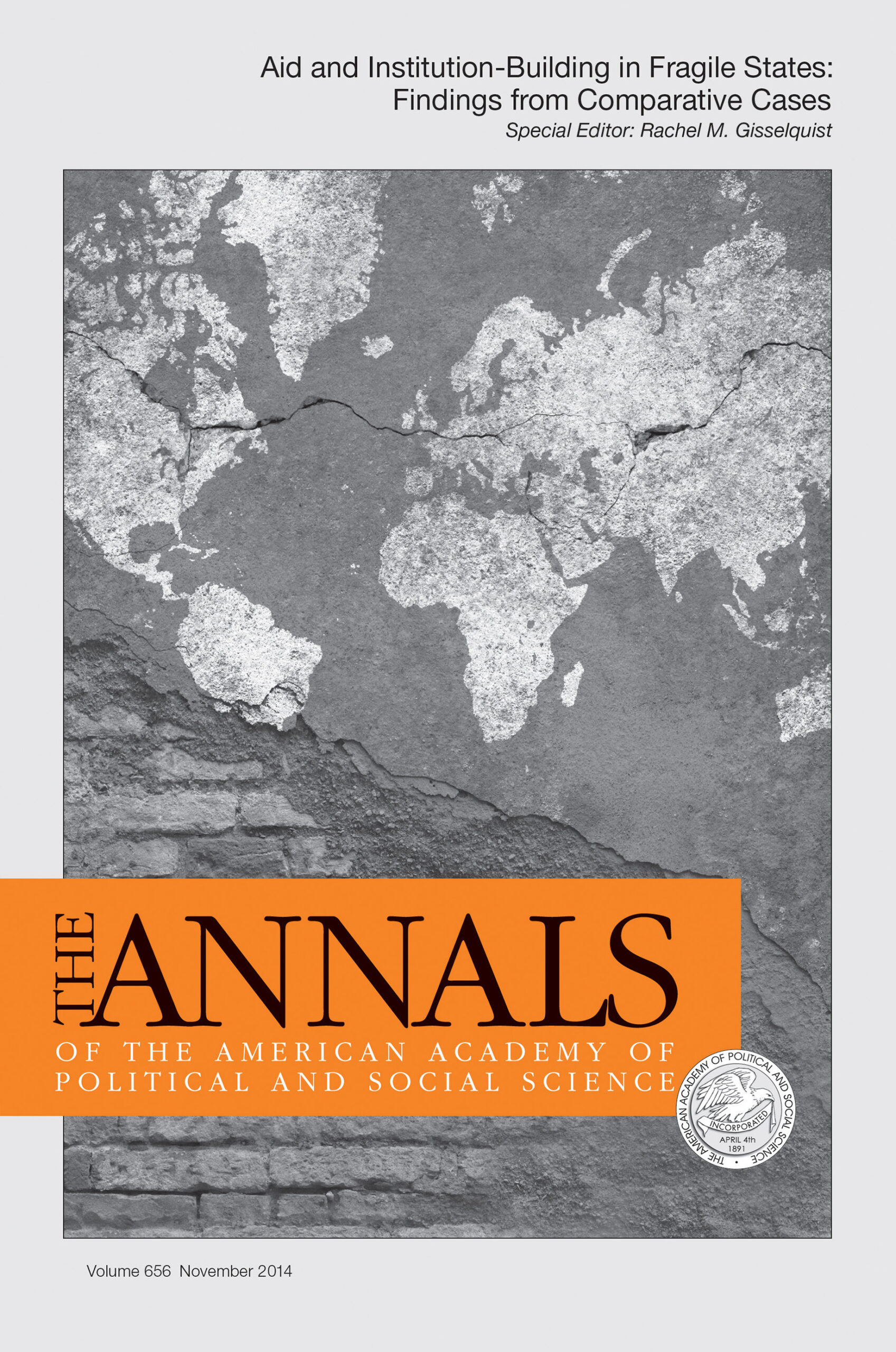Paving new ground in theory development, the articles in this volume of The ANNALS explore factors that contribute to institution-building in fragile states through comparative case studies. Such factors include the limits (and benefits) of domestic and foreign aid; the impact of a state’s historical strength; the impact of colonial and postcolonial interventions; and the political economy incentives for political leaders to sustain state fragility. Overall, the studies illustrate that aid has both positive and negative effects on institution-building in fragile states. Aid has the potential to contribute to state robustness through changing incentives and shaping institutional structures directly. However, aid can also weaken states, depending on a state’s domestic institutional legacy and political dynamics. The studies call for more research into theories of institution-building to further enhance those that are discussed in this volume.

